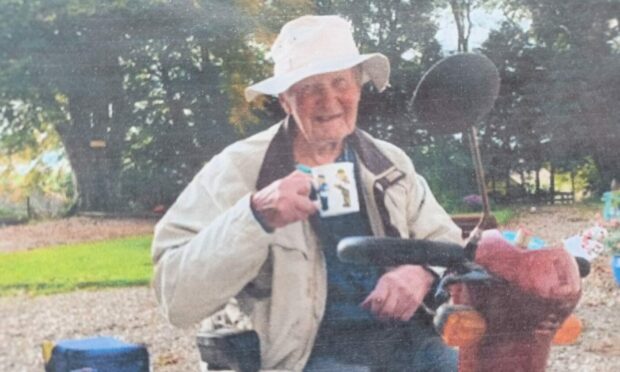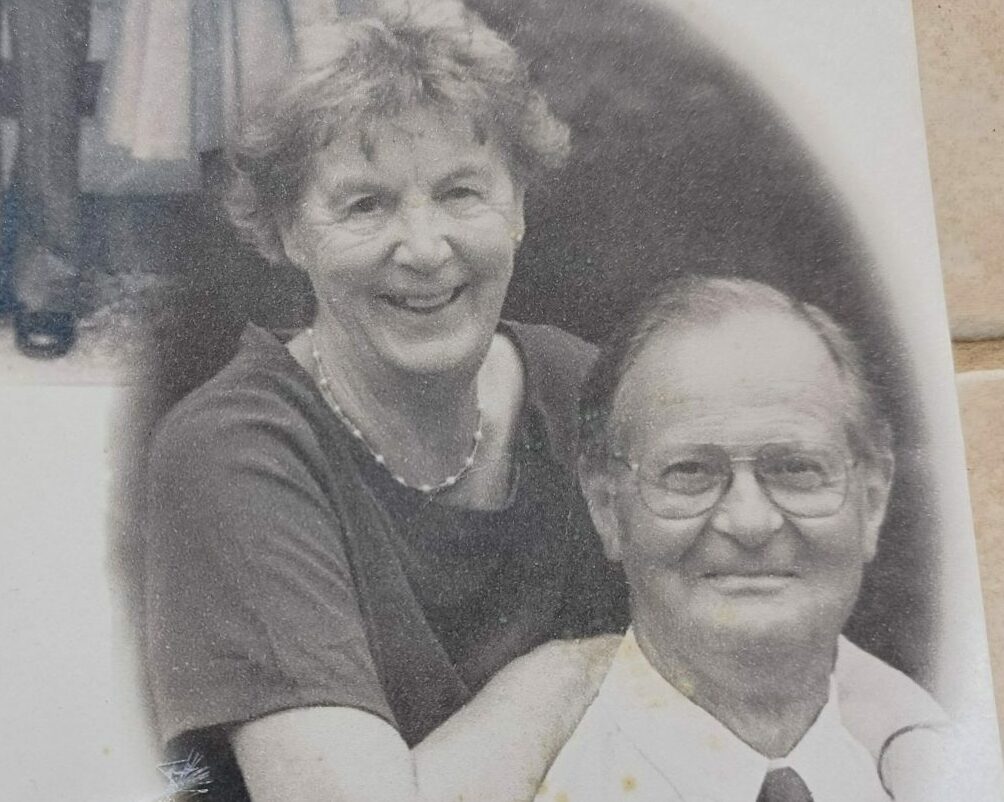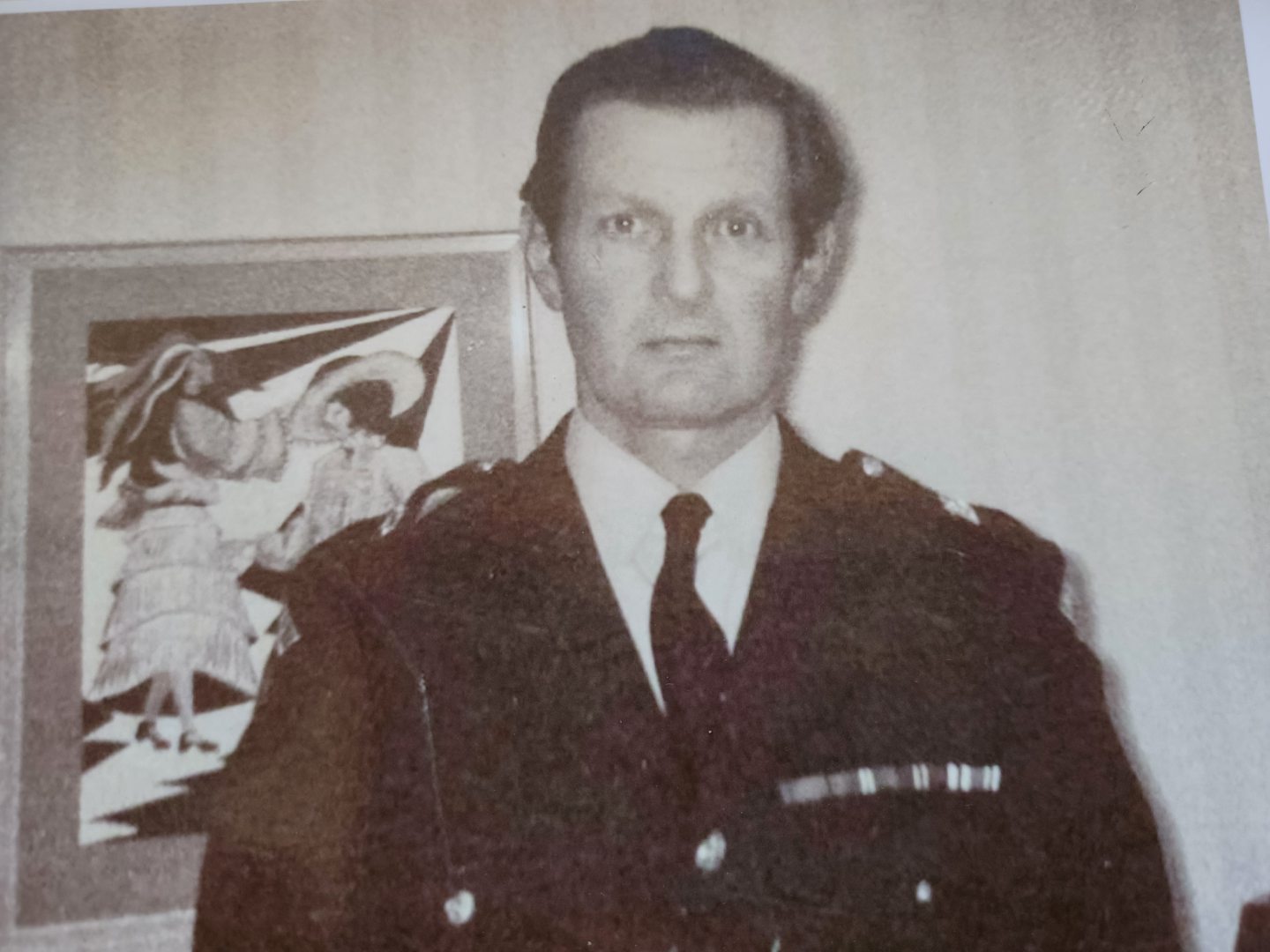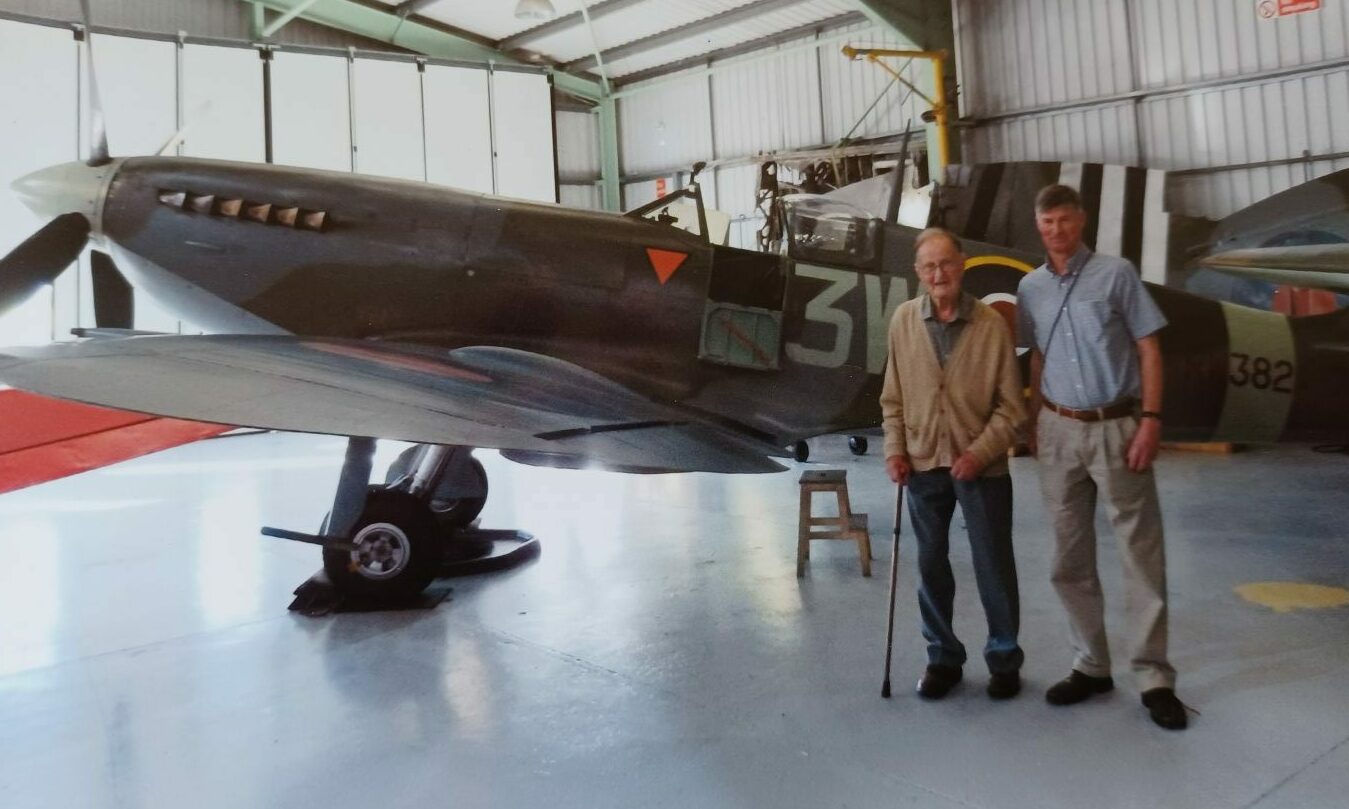Farmer Bill Innes, who has died aged 99, became captivated by aviation when a flying circus visited Stonehaven in the 1930s.
He got on his bike, cycled from his home in Fordoun and was so impressed he signed up to join the air cadets in Montrose.
Bill never let his passion for flying wane and as the Second World War broke out he left Mackie Academy, Stonehaven, and joined the RAF.
He began his military career at Aberdeen University, learned to fly on Tiger Moths and qualified as a flying instructor.
Bill was sent to Canada in 1942 where he was based at 10 RAF stations. As his expertise grew he developed the ability to tell on their first flight which recruits would make the grade.
During 1943, Bill met Wing Commander Guy Gibson of the Dambusters who was touring the US and Canada.
His son, David, said: “Guy Gibson was on a speaking tour to explain how the raids were carried out.
“My father recalled that Guy Gibson had a great presence; he was full of confidence and self esteem. He was only 25 and very assertive but also very tired.”
Bill Innes witnessed the evolution of the Spitfire from the 600 horsepower machines of the Battle of Britain to Mark 15, five-propeller aircraft towards the end of the war which pushed out around 1600 horsepower.
However, his own personal favourite was the Mosquito. David said: “Nothing could touch it for speed and versatility, my father said.”
After the war, Bill returned to farming and also helped reform 612 County of Aberdeen Squadron of the RAF auxiliary, flying from Dyce.
He was born in Kodaikanal in southern India in July 1923 to David Innes, a manager with Grindley Bank of India, and his wife Barbara (Allan).
In 1924, the family returned to Scotland to take over the running of Mains of Fordoun farm.
Bill’s grandfather, who came from Glen Esk, had worked at the farm as a young man and always said if it came on the market he would bid for it. He was farming at Little Clintery when the Arbuthnott Estate advertised Mains of Fordoun.
He was successful and the farm became a family enterprise set around Fordoun House, which dates from the 1600s.
“My great-grandfather persuaded my grandfather to return from India and start farming, said David. “It was a big undertaking because he did not have a farming background and the economy was weak going into the Depression.”
Now living in Fordoun, Bill began his education at Auchenblae primary before moving to secondary school in Stonehaven.
After his wartime adventures, Bill returned to study at Aberdeen University, gained a BSc in agriculture and served as a Flight Commander with 612 Squadron patrolling the North Sea tracking Russian ships.
On one memorable mission, three or four Spitfires were operating off Bervie and flew into a black storm cloud. Two aircraft were lost but Bill had the presence of mind to go with the storm rather than fight it and emerged unharmed.
He left the RAF in 1952 after flying for 10 years and 2,000 hours and qualifying to fly 12 different aircraft from biplanes to twin-jet fighters.
It was then he settled down to farming life with his wife Mary, whom he married in 1949 and welcomed three of a family, Elisabeth and twins Janie and David.
In the 1960s Bill was invited to become a special constable and served the Mearns area for 20 years. He worked alongside regular officers and was called on to assist in royal security at Balmoral.
Bill was a committee member of the local branch of NFU Scotland, served as chairman for two years and branch representative for five years.
During the 1970s he took up curling, played for Fettercairn and participated in the last Grand Match at Lake of Menteith in 1979.
In 1991 he became a founder member of Mearns Probus Club and attended meetings and talks in Laurencekirk until the beginning of 2000.
He was also a bowler and together with Mary enjoyed walking and many holidays abroad and latterly in Scotland.
On a trip to Biggin Hill Heritage Museum his knowledge of Spitfires made him the centre of attention of the tour group.
On another occasion he piloted a Spitfire simulator and suggested changes to make the experience more lifelike.
The instructor was amazed that he still retained his flying skills and invited him to sign the inside of the cockpit, an honour only given to two people previously.
David said: “He took a great interest in people. It did not matter who they were he would enjoy hearing their stories.
“The recurring description of him made by people in tributes after his death is that he was a proper gentleman.
“He was never loud and had a way of making people feel at ease.”
You can read the family’s announcement here.







Conversation